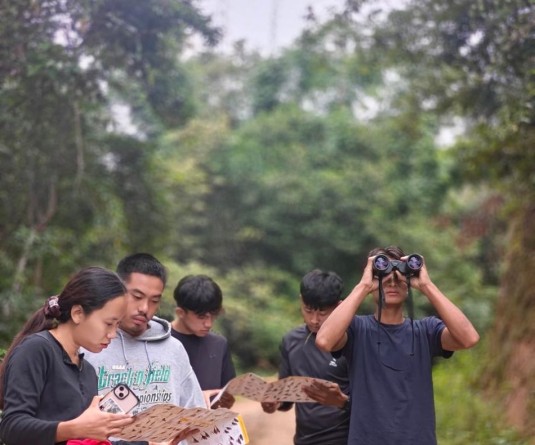
Khrukroku Vero
Kohima
Here comes again the 2013 election to 12th NLA, a time when the rate of violence and corruption shall rise and widespread breach of constitutional laws goes remain uncheck. Proxy voting during election is a general practice that has been going on for many years in every polling station ever since Nagaland got statehood. A voter, though physically not present on the day of election, yet successfully casted his/her vote not by e-vote or postal ballot but by proxy. Hence it is a common belief in Nagaland that a voter need not necessarily be present in the polling booth to cast vote. So, how is this possible? Yes, everything is possible in Nagaland. The introduction of Voter’s Identity Card to check proxy voting has alternatively made it possible for the Nagas to go for proxy voting. An absentee voter shall handover his/her voter ID card to someone he/she trust to vote for a particular candidate on his/her behalf. This kind of practice is not uncommon in the history of election in Nagaland and is known by everyone including the Presiding officers, Returning Officers and even the MLAs and Ministers who are also elected by this same process.
Another typical method of casting votes especially practiced in remote rural area is one man vote on behalf of a particular group of persons say (a family). Under this system, a person generally head of the family shall collect all the voter’s ID cards from his family members and cast by himself on behalf of them. This is generally done in order to avoid queuing up for casting their votes and save time. After all, he is the boss, he decides whom to support.
The misuse of political rights such as right to vote in our state is not only confined to rural areas alone but also rampantly found even in urban areas and among the Government employees particularly the police and military personnel. There are a good number of armed police forces who have never cast their vote by themselves but by someone else after joining the state forces. It is also found out that 90% of policemen have never heard about postal ballot (when I interviewed soldiers from an IRB CoY deployed in Dimapur). It is also found out that 70% of them have not cast their vote by themselves but someone else for the last two elections to NLA consecutively since they were deployed in other places during elections. So what is the real problem here? I found out that here in our state, employees deputed for polling duty including policemen are widely ignored. The present postal ballot system is complicated and cumbersome; many people prefer not to vote instead of going through all these office procedures. So unless special arrangements are made, like educating the public about postal ballot, opening up of facilitation centres for postal ballot (as practice in Gujarat) to assist voters, I am convinced, one man, one vote is simply a myth.
Postal ballot is a costly affair and it has to be borne by the state Government. A postal ballot is roughly around Rs 100 per ballot including postage which is the reason why state govt rarely encouraged postal ballot, and in turn this has encouraged proxy voting.
So in order to effectively check proxy votes, the first thing to do is to change the mindset of the people that NOT EVERYONE WHO HAVE VOTER IDENTITY CARD HAS THE RIGHT TO CAST VOTE WITHOUT PHYSICALLY BEING PRESENT IN PERSON. It is not legal (other than postal ballot).
The next step is to open up facilitation centres in different areas for postal ballot so that those who could not reach their native polling station on the day of election, they are also given an opportunity the right of electing their candidate.




